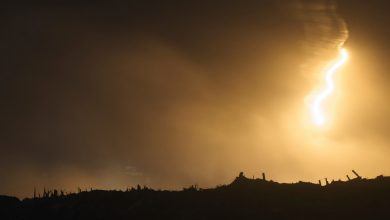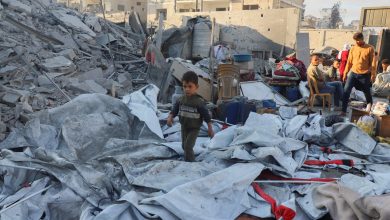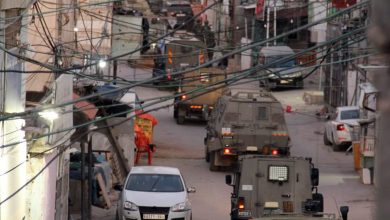Tensions are escalating along the Lebanese-Israeli border, with accusations leveled against Israel of deliberately attempting to destabilize the region following the ceasefire in Gaza. According to military analyst Brigadier General Hassan Jouni, Israel has entered a new phase of military and security engagement with Lebanon, characterized by increased aggression aimed at disarming Hezbollah and imposing its own security vision. This assessment comes amidst a series of incidents, including cross-border incursions, airstrikes, and a particularly controversial incident involving the killing of a Lebanese government employee within a municipal building.
Speaking to Al Jazeera, Jouni highlighted the increasing frequency of Israeli incursions and attacks, including continuous patrols, airstrikes, and drone activity. However, he emphasized the most alarming development as the alleged entry of Israeli forces into a Lebanese state institution and the subsequent killing of a government employee within his workplace. “This represents a clear violation of Lebanese sovereignty,” Jouni stated.
Reports indicate that Israeli fighter jets conducted airstrikes in open areas of the Jarmaq mountains and the Mahmoudiya region in the Jezzine district of southern Lebanon. Simultaneously, ground forces reportedly attacked the municipality building in Blida, resulting in the death of an employee. Al Jazeera’s correspondent reported that Israeli forces entered the municipality building, opened fire on the employee, and withdrew after two hours.
Jouni argues that these strikes carry significant implications. He believes they target specific areas previously identified by Israel as Hezbollah arms depots, but now serve as a pretext for maintaining a state of instability. According to Jouni, the continuous bombardment of these areas has become an end in itself, aimed at generating anxiety among residents of southern Lebanon and disrupting their lives through the use of powerful explosives. He asserts that Israel likely exhausted any genuine military targets long ago, given its advanced weaponry.
The Lebanese President, Joseph Aoun, has responded by instructing the Lebanese Armed Forces to confront any Israeli aggression or incursion in defense of Lebanese citizens and institutions. Jouni described this stance as “progressive and courageous.”
While the Israeli military claims the targeted building was being used by Hezbollah as a military structure under civilian cover, this justification has been widely rejected in Lebanon. The Lebanese Army condemned the operation as criminal, a violation of Lebanese sovereignty, and a breach of the ceasefire agreement. The Israeli military spokesperson stated that the attack targeted a suspect inside the building. The spokesperson added in a statement that the force felt threatened while attempting to arrest the individual and opened fire, wounding him. An investigation into the incident has been launched, according to the statement.
The incident in Blida has further inflamed tensions already simmering due to ongoing disputes over territory. Israel continues to refuse to withdraw from five hills in southern Lebanon – Al-Awaida, Al-Adhab, Al-Hamames, Jabal Balat, and Al-Labouneh – in violation of the ceasefire agreement signed a year ago. This persistent refusal to comply with the agreement further fuels resentment and distrust.
The events in southern Lebanon are occurring against a backdrop of regional instability. The ceasefire in Gaza, while a welcome development, remains fragile. The potential for escalation along the Lebanese-Israeli border remains a significant concern. The actions of both sides will be crucial in determining whether the current tensions can be contained and a more lasting peace can be achieved.
For more information about Palestine, check our dedicated section.
Analysts suggest several factors are contributing to the current escalation. One is the ongoing power vacuum in Lebanon, which has left the country politically vulnerable and susceptible to external pressures. The lack of a strong central government makes it difficult for Lebanon to effectively assert its sovereignty and control its borders.
Another factor is the perceived strength of Hezbollah, which Israel views as a major threat. Israel has repeatedly stated its determination to prevent Hezbollah from acquiring advanced weaponry and expanding its influence in the region. The alleged use of civilian infrastructure by Hezbollah, as claimed by the Israeli military, provides a justification for its actions in the eyes of some.
However, critics argue that Israel’s actions are disproportionate and aimed at destabilizing Lebanon in order to weaken Hezbollah. They point to the economic and social impact of the ongoing conflict on the Lebanese population, which is already struggling with a severe economic crisis.
The international community has expressed concern over the escalating tensions and called for restraint from both sides. The United Nations Interim Force in Lebanon (UNIFIL) has been working to maintain calm along the border and investigate alleged violations of the ceasefire agreement. However, UNIFIL’s ability to effectively monitor and enforce the agreement is limited by its mandate and resources.
The situation in southern Lebanon remains volatile and unpredictable. The risk of further escalation is high, and the potential for a wider conflict cannot be ruled out. Diplomatic efforts to de-escalate tensions and address the underlying causes of the conflict are urgently needed. The people of Lebanon deserve to live in peace and security, free from the threat of violence and instability.
The killing of the municipal employee in Blida has become a rallying cry for many Lebanese, who see it as a symbol of Israeli aggression and disregard for Lebanese sovereignty. Protests have erupted across the country, calling for an end to Israeli incursions and a stronger defense of Lebanese territory. The incident has also served to unite various political factions in Lebanon, who are increasingly united in their condemnation of Israel’s actions.
Ultimately, a lasting solution to the conflict in southern Lebanon will require addressing the underlying issues that fuel the tension. This includes resolving the territorial disputes, disarming Hezbollah, and establishing a stable and effective government in Lebanon. It also requires a commitment from both Israel and Lebanon to respect each other’s sovereignty and refrain from provocative actions that could lead to further escalation. Without such a comprehensive approach, the cycle of violence and instability is likely to continue.




